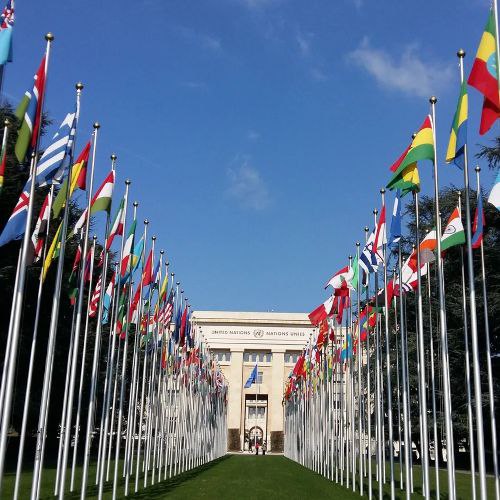The UN General Assembly (UNGA) is slated to convene on Thursday, March 21, 2024, for a momentous vote on what could mark a significant milestone in the global discourse surrounding artificial intelligence (AI). The resolution under consideration, spearheaded by the United States and endorsed by 54 co-sponsors, aims to address the critical imperative of ensuring the safety, security, and trustworthiness of AI technologies. With hopes pinned on unanimous support from all 193 UN member states, this resolution aims to lay down a foundational framework for responsible AI governance on the international stage.
At its core, the draft resolution acknowledges the rapid and unprecedented pace at which AI development and deployment have surged across diverse sectors and geographies. It emphasizes the urgent need to forge a collective consensus on cultivating AI systems that are not only technically advanced but also ethically sound and socially responsible. Moreover, the resolution places a spotlight on the persistent digital divide that persists between developed and developing nations, emphasizing the imperative of bridging this gap to ensure equitable access to AI technologies and their benefits.
The Significance of the UN General Assembly Vote
For the first time in the history of the United Nations, this resolution issues a clarion call to action to a wide spectrum of stakeholders, including national governments, regional and international organizations, tech communities, civil society groups, media entities, academic institutions, research organizations, and individual actors. It urges these diverse stakeholders to collaboratively engage in the formulation and implementation of robust regulatory frameworks and governance mechanisms aimed at fostering the safe and responsible development, deployment, and utilization of AI technologies.
In a world where the boundaries between the physical and digital realms are becoming increasingly blurred, the need for a concerted effort to safeguard against the risks posed by AI technologies has never been more pressing. In its presented text to the UNGA, the resolution warns against the potential pitfalls of unchecked AI proliferation, cautioning against scenarios where AI systems undermine fundamental human rights or violate international law through their design, development, deployment, or utilization.
By emphasizing the importance of upholding human rights and fundamental freedoms throughout the entire lifecycle of AI systems, the resolution seeks to carve out a path towards a future where AI technologies serve as enablers of progress and prosperity, rather than sources of discord or disenfranchisement. By doing so, it aims to chart a course toward a future where humanity’s collective well-being is served by harnessing the promise of AI, fostering a world where the benefits of technological advancement are distributed equitably and managed responsibly.
See also: AGI is 5 years away”, says Nvidia CEO Jensen Huang


















